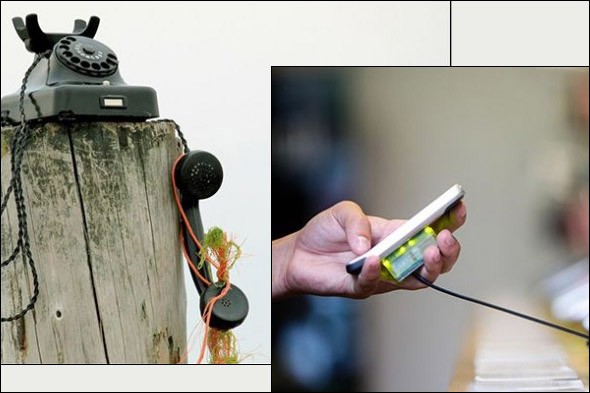CUB’s Telecommunications Advocacy Role: A Policy Primer – Part 2
Posted on August 6, 2019 by Samuel Pastrick
Tags, Telecommunications

Interactions between information and communications technology (ICT) regulation and legislative policy development are complex, and too often they don’t reflect residential customers’ best interest. This complexity merits a two-part blog. “Part 1” summarized CUB’s consumer advocacy history in the ICT arena, technical background, and a discussion of the regulated and not-so-regulated aspects of the ICT arena. Today’s “Part 2” entry summarizes recent legislative victories, failures, and potential next steps.
- HB 3268 (2017) took several turns before landing on a version to increase low-income household participation in the Oregon Telephone Assistance Program (OTAP), a voice and “broadband internet access service” (BIAS) bill payment assistance program funded by the Residential Service Protection Fund (RSPF). OTAP helps offset the cost of voice and BIAS for low-income households by complementing the Lifeline program, a federally funded bill payment assistance program dating back to the Reagan Administration. The final version of HB 3268 created laudable participation goals for OTAP/Lifeline and an OTAP Advisory Committee. (CUB serves on the Committee along with business, government, and other community representatives to facilitate the participation goals.) HB 3268 and the Advisory Committee may prove moot because the Federal Communications Commission (FCC), with guidance from the Trump Administration, continues to imperil the Lifeline program and, consequently, OTAP.
- HB 4155 (2018) is Oregon’s answer to the 2017 repeal of the FCC’s 2015 Open Internet Order, which established “net neutrality” consumer protection rules at the federal level. While not a one-to-one statutory replacement for the earlier FCC rules, the bill – which at the time was only the second in the country to pass through a state legislature – prohibits public bodies (cities, towns, and other political jurisdictions) from contracting with internet service providers that refuse to adhere to core net neutral principles: no blocking, throttling, or paid prioritization.
- HB 4023 (2018) established a Broadband Champions Program, a vehicle for Oregon to match federal E-rate dollars (monies earmarked to connect rural schools and libraries), and empowers the state’s “Office of the Chief Information Officer” to leverage Oregon’s fiber assets to serve unserved and underserved public, tribal, and nonprofit entities with BIAS.
- HB 3065 (2019) instructs the Oregon Public Utility Commission (PUC) to investigate – with input from CUB, telecommunications providers, and advocates for rural, low-income, and older adult customers – the extent to which the PUC’s current regulatory structure ensures adequate and reasonable access for residential customers to reliable, safe, affordable, and non-discriminatory telecommunications service in all parts of Oregon. In a nutshell, this legislation compels an investigation into telecommunications utilities’ “carrier of last resort” (COLR) obligations. HB 3065was CUB’s response to a bill advocated by CenturyLink that would have eliminated COLR in Oregon to the detriment of residential customers.
- HB 2184 (2019) ultimately failed, but CUB will redouble advocacy efforts before and during the 2020 Oregon Legislative session. The proposed legislation would have applied a lower and fairer (6 percent) OUSF surcharge on intrastate voice service to all voice customers – including wireless and voice over internet protocol (VoIP). The current (8.5 percent) surcharge is unfairly applied to only landline or “plain old telephone service” (POTS) and certain VoIP lines. Broadening the base would stabilize the current “high cost fund” – which compensates companies for their COLR obligations – and would generate enough additional revenue (up to $5 million annually) for BIAS infrastructure and community planning grants for unserved and underserved, predominately rural, areas. This money would also fill the E-Rate matching fund created by HB 4023. CUB advocated relentlessly for HB 2184 during the 2019 legislative session to: 1) resolve the inherent unfairness of only POTS and certain VoIP customers paying for statewide ICT networks, and 2) because the “IP transition” has shifted many consumers’ expectations away from POTS and toward voice alternatives and BIAS.
- HB 2173 (2019) created an Oregon Broadband Office (OBO) to centralize BIAS policy and implementation at the state level, and to administer potential infrastructure and planning grants. The failure of HB 2184 unfortunately hampers the OBO’s effectiveness in the near-term. HB 2173 also extended the 2020 sunset for the Oregon Broadband Advisory Council, adds a consumer advocate to the charter, and highlights digital equity and inclusion as top priorities for the Council.
- HB 2866 (2019) died in committee, but it did force the Oregon Department of Justice to assemble a Consumer Privacy Task Force, on which CUB will serve, to develop omnibus digital privacy legislation in 2021. The proposed legislation, authored by CUB, ACLU of Oregon, and OSPIRG, had two core provisions: 1) a “Right to Know” policy allowing consumers to submit data requests to business entities that collect, analyze, sell, or otherwise transfer their personal information through their use of digital electronic devices; and 2) business entities must receive consent from consumers before collecting, analyzing, selling, or otherwise transferring their geolocation and audiovisual information.
Key takeaways:
- CUB’s advocacy role in the ICT arena is critical, because of the increasingly outsized necessity of advanced communications in the lives of residential customers, and nuanced due to our strategic navigation of three intertwined policy worlds: 1) state-regulated POTS; 2) lightly regulated wireless and VoIP; and 3) unregulated BIAS.
- ICT policy, developed through state and federal legislation or regulation, has not adequately kept pace with technology innovation – the “internet protocol transition”. This all too often results in the exclusion and exploitation of residential customers, particularly older adults, people with disabilities, non-native English speakers, communities of color, and low-income families.
- CUB is committed and uniquely qualified to advocate for public interest ICT polices that consider and benefit all residential customers.
To keep up with CUB, like us on Facebook and follow us on Twitter!




09/05/22 | 0 Comments | CUB’s Telecommunications Advocacy Role: A Policy Primer – Part 2